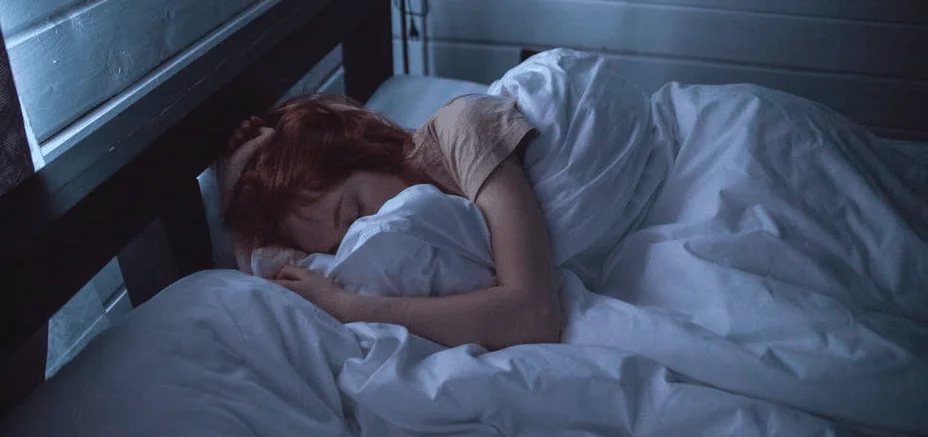New research out of Japan suggests that certain prescription sleeping pills are capable of keeping users conked out all night, even in the presence of danger.
A recent study published by Frontiers in Behavioral Neuroscience indicates that many prescription sleeping pills may work a little too well, causing users to sleep through all manner of “warning alerts,” including fire alarms. Using laboratory mice as the test subject, Japan-based researchers reported that benzodiazepines — a class of drugs which includes products like Valium, Ambien, and Xanax — can induce a sleep powerful enough to be considered eminently unsafe.
Over the course of a few months, Professor Tomoyuki Kuwaki and his team monitored the sleep of mice both on and off benzodiazepines, noting that even a small dose of the drug is enough to keep them from waking despite loud horns, vacuum cleaners, fire alarms, and other loud noises. While this specific research was not tested on human subjects, Kuwaki and his team assert the effects would be comparable for those who take prescription sleeping pills.
I reached out to Kuwaki to learn more about the dangers of popular sleep aids such as Valium and Ambien, and he told me that it’s all about our brain’s “gatekeeper.”
Essentially, sensory inputs continuously reach our brain even when we are asleep. During sleep, a brain mechanism called the “gatekeeper” keeps unimportant information from reaching the cerebral cortex (where our cognition takes place). This is why we can sleep despite a slightly noisy environment. However, many prescription sleeping pills contain benzodiazepines which make the gatekeeper too strong. When that happens, warning alerts and signs of danger will not reach the cortex, and we will stay fast asleep.

Kuwaki went on to tell me that, in an effort to promote safer sleep aid alternatives, he and his team are conducting experiments on dual orexin receptor antagonists (or DORAs). By replacing benzodiazepines with DORAs, Kuwaki believes that users can still benefit from the sedative effects of sleep aids — without impacting the gatekeeper system in a dangerous way.
Related: Having trouble sleeping? Learn more about insomnia from Sleepopolis experts.
A (Very) Brief History of the Sleeping Pill
People have been experimenting with ways to get better slumber for centuries, but it wasn’t until the 1960’s that benzodiazepines came to the American pharmaceutical market as a sleep aid. Soon after its debut, benzo-based sleeping pills (particularly Valium) rose in popularity, and most found them preferable to the barbiturates that were commonly used in the decades prior. However, the quest for a sleep-aid solution with fewer physical side effects led to increased exploration of melatonin and other over the counter remedies. (1)
Despite the consistent development of new sleeping pills, benzodiazepines are still among the most frequently prescribed within the U.S. Unfortunately, studies show that the amount of hospitalizations related to prescription sleep aid has been steadily rising, and more Americans have come to rely upon pharmaceutical sleeping pills. Additionally, some research suggests that benzodiazepines, specifically, are responsible for harmful residual side-effects — inspiring experts like Kuwaki to find safer methods of treatment. (2)
Over the Counter, Under the Covers
In my conversation with Kuwaki, he explained that falling asleep without the help of drugs is ideal for an individual’s overall sleep hygiene. However, he also cites in his research that about 60% of the American population relies on some sort of sleep aid in order to stay asleep throughout the night. So, one can’t help but wonder: Should sleepers try to go cold turkey, or is it better to find a happy medium?
According to Kuwaki, though a drug-free sleep is the most healthy for the body, “sleep quality is judged by personal satisfaction.” Essentially, the goal is to get the most restorative sleep you can while limiting harmful physical side effects as much as possible. Perhaps that’s why Kuwaki and his team are focusing their efforts on DORAs now, which are said to be less dangerous for the user during sleep, and bear fewer side effects the following morning.
So far, DORAs have only been tested on mice. However, Kuwaki’s research found that mice who were given the drug DORA-22 woke just as quickly as those who were given nothing at all. Conversely, mice that were dosed with traditional sleep medication were far more difficult to rouse from their slumber. In the event that further testing shows human participants reacting similarly, this research might be a game changer for those who regularly use sleeping pills.


























